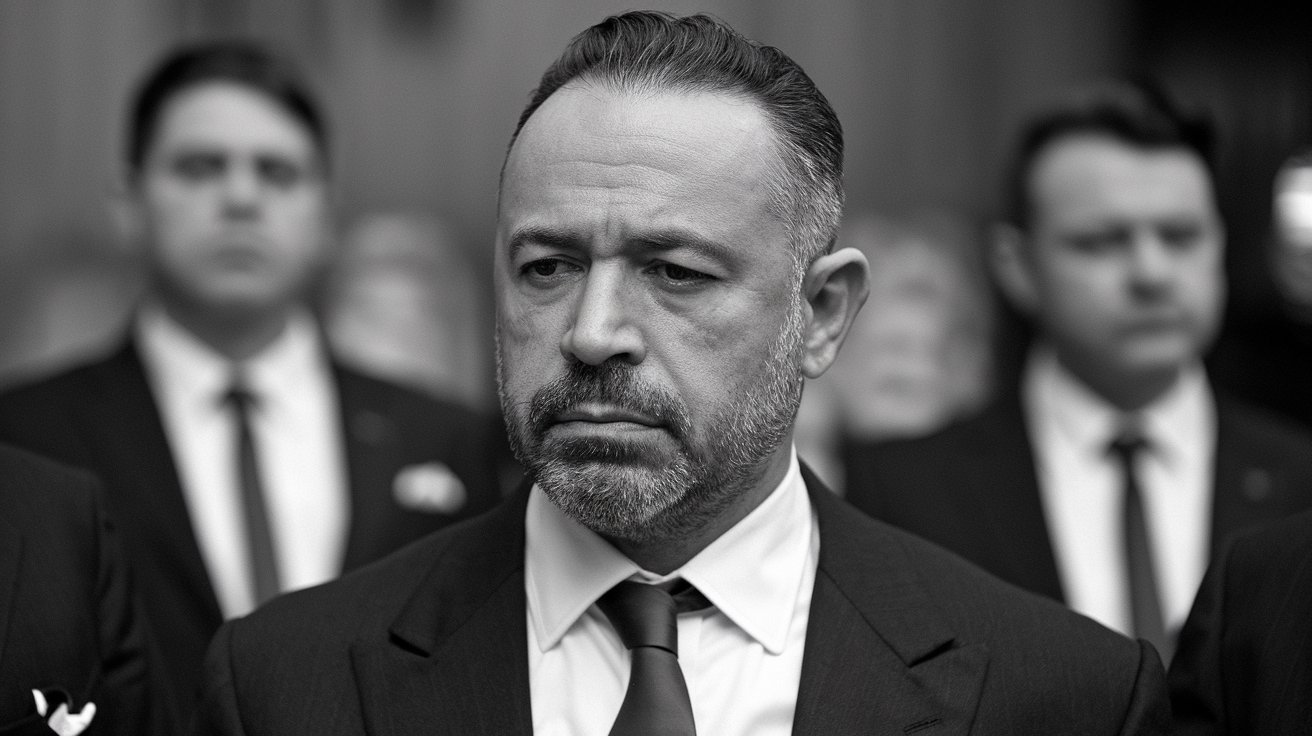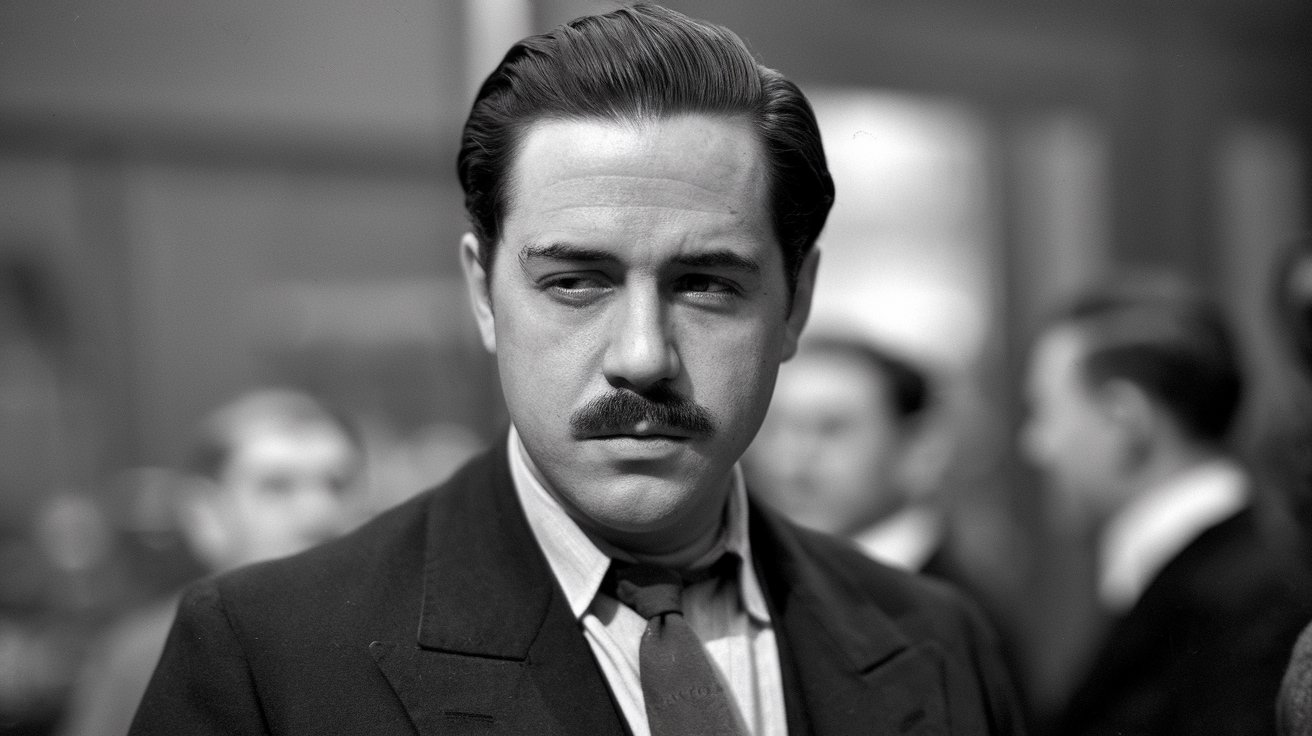
Vincent Gigante, also known as "The Chin," remains one of the most enigmatic figures in American organized crime. Born on March 29, 1928, in New York City, Gigante's life journey took him from a promising boxing career to becoming the elusive boss of the Genovese crime family. How did a man who wandered the streets in pajamas and muttered to himself rise to such power? Gigante's cunning tactics, including feigning mental illness for nearly 30 years, allowed him to evade law enforcement and maintain control over his criminal empire. His story is a blend of deception, power, and the complexities of a life steeped in crime.
Key Takeaways:
- Vincent Gigante, a former boxer, rose to power in the mafia through cunning and deception, using a fake mental illness to evade prosecution for years.
- Gigante's family and associates played crucial roles in maintaining his ruse, contributing to his image as a harmless eccentric despite his powerful mafia status.
Early Life and Family
Vincent Gigante's journey from a humble beginning to becoming one of the most notorious mafia bosses is a tale of grit, cunning, and deception.
- Vincent Gigante was born on March 29, 1928, in New York City to Salvatore and Yolanda Gigante, first-generation immigrants from Naples, Italy.
- He was one of five sons in the Gigante family, growing up in a modest household that laid the foundation for his future endeavors.
Boxing Career
Before becoming a mafia boss, Gigante had a promising career in the boxing ring.
- Gigante began his professional boxing career in 1944, fighting 25 matches between 1944 and 1947.
- He won 21 of these fights, earning the nickname "The Chin" due to his mother's Italian pronunciation of his name.
Entry into the Mafia
Gigante's transition from boxing to organized crime marked the beginning of his rise in the underworld.
- After dropping out of Textile High School in Manhattan, Gigante joined the Luciano crime family, which later became the Genovese family.
- His manager at the time was Thomas Eboli, a high-ranking member of the Luciano family.
Association with Vito Genovese
Vito Genovese played a crucial role in shaping Gigante's criminal career.
- Gigante's association with Vito Genovese, a prominent mafia boss, was pivotal in his rise to power.
- Genovese became his mentor and helped him transition from boxing to a life of crime.
Failed Assassination Attempt
Gigante's involvement in a high-profile assassination attempt solidified his position within the mafia.
- In 1957, Gigante was involved in a failed assassination attempt on Frank Costello, a longtime Luciano boss.
- This incident further cemented his status within the mafia hierarchy.
Drug Trafficking Conviction
Gigante's criminal activities led to his first major legal trouble.
- In 1959, Gigante was sentenced to seven years in prison for drug trafficking.
- During his imprisonment, he shared a cell with Vito Genovese, who would later become a key figure in his career.
Rise to Power
Gigante's ascent within the Genovese family was marked by his ruthless tactics and strategic thinking.
- By the 1960s, Gigante had risen to become a full-time gangster, working as an enforcer for the Genovese family.
- His career in the mafia continued to ascend, earning him a reputation as a ruthless and cunning leader.
Bribery Scheme Indictment
Gigante's legal troubles continued with a bribery scheme indictment.
- In 1969, Gigante was indicted in New Jersey for a bribery scheme involving members of the Old Tappan Police Department.
- This indictment led him to feign mental illness to avoid prosecution.
Feigning Mental Illness
Gigante's strategy of pretending to be mentally ill became a hallmark of his career.
- Gigante would often wander the streets of Greenwich Village in pajamas and a bathrobe, talking to himself and muttering nonsensical phrases.
- This act was designed to portray him as a disturbed and harmless individual.
Psychiatric Diagnoses
Gigante's attorneys used psychiatric diagnoses to support his ruse.
- Gigante's attorneys presented reports from psychiatrists that he suffered from paranoid schizophrenia.
- This diagnosis was used to declare him unfit for trial, allowing him to avoid prosecution for several years.
Internal Security Protocols
Under Gigante's leadership, the Genovese family implemented strict security measures.
- Members were forbidden from mentioning his name, instead using gestures like touching their chin or forming the letter "C" with their hand to refer to him.
- These protocols helped maintain secrecy and protect Gigante from law enforcement.
Family Involvement
Gigante's family played a crucial role in maintaining his ruse.
- His younger brother, Louis, a Roman Catholic priest, repeatedly attested to Gigante’s mental illnesses.
- This added credibility to his defense in court and helped him avoid prosecution.
Public Perception
Gigante's public behavior contributed to his image as a harmless eccentric.
- Despite his reputation as a powerful mafia boss, Gigante was often seen as a harmless eccentric.
- His public behavior, including wearing pajamas and a bathrobe, contributed to this perception.
Racketeering and Murder Charges
Gigante faced serious charges but managed to evade legal trouble for years.
- In 1990, Gigante was charged with racketeering and murder.
- Due to extensive evidence of his mental limitations, he remained out of further legal trouble for seven more years.
Prosecution and Conviction
Gigante's ruse eventually unraveled, leading to his conviction.
- In 1996, prosecutors argued that Gigante was faking his mental illness.
- The judge allowed the trial to move forward, and high-level mafia operatives testified that Gigante was indeed of sound mind.
Admission of Guilt
Gigante finally admitted to his deception in 2003.
- On April 7, 2003, at the age of 75, Gigante admitted that his behavior was a ruse.
- He pleaded guilty to one count of obstruction of justice, adding three more years to his prison term.
Leadership of the Genovese Family
Gigante's tenure as the boss of the Genovese family was marked by expansion and power.
- Gigante became the boss of the Genovese crime family in 1981, a position he held until his death in 2005.
- During his tenure, he expanded the family's operations in various areas, including loan-sharking, bookmaking, extortion, and bid-rigging for New York City infrastructure contracts.
Death and Legacy
Gigante's death marked the end of an era for the Genovese crime family.
- Vincent Gigante died on December 19, 2005, while serving a 12-year prison sentence.
The Legacy of Vincent Gigante
Vincent Gigante's life was a wild mix of deception, crime, and cunning strategy. From his early days as a boxer to becoming one of the most powerful mafia bosses, his story is nothing short of fascinating. Feigning mental illness for nearly 30 years, he managed to evade law enforcement and maintain control over the Genovese crime family. His public antics, like wandering the streets in pajamas, added layers to his complex persona. Even after his eventual conviction, Gigante's influence on organized crime and popular culture remains significant. His tactics have been studied by both criminals and law enforcement, making him a unique figure in American history. Gigante's legacy serves as a reminder of the lengths some will go to in the pursuit of power and control. His story continues to captivate and inspire, leaving an indelible mark on the world of organized crime.
Frequently Asked Questions
Was this page helpful?
Our commitment to delivering trustworthy and engaging content is at the heart of what we do. Each fact on our site is contributed by real users like you, bringing a wealth of diverse insights and information. To ensure the highest standards of accuracy and reliability, our dedicated editors meticulously review each submission. This process guarantees that the facts we share are not only fascinating but also credible. Trust in our commitment to quality and authenticity as you explore and learn with us.


